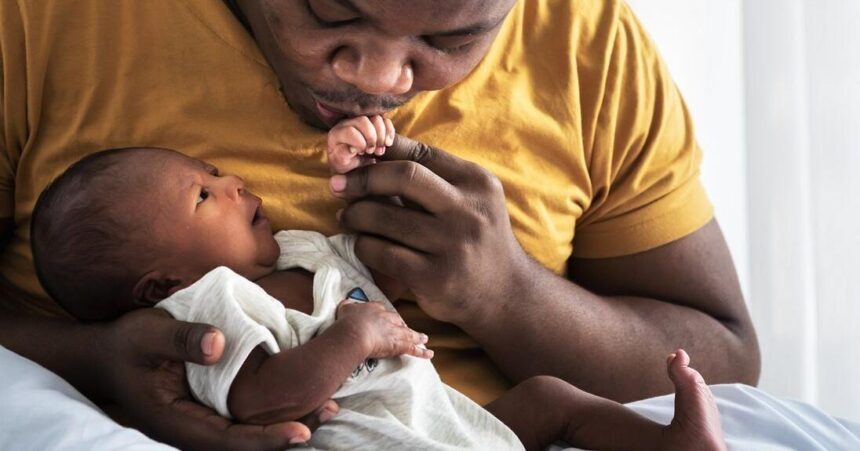Joel Gratcyk remembers the moment he finally broke.
He pulled his car off to the side of the road, tears streaming down his face. His newfound fatherhood was supposed to be one of the happiest times of his life. Instead, he was sinking deep into a heavy sadness while his infant son sat in the back seat.
A new University of Illinois at Chicago pilot study suggests that men should be routinely screened for postpartum depression. It’s part of a growing push to shift the dialogue surrounding men’s mental health.
It was all too much. The stress, the lack of sleep, the lingering fear that he wouldn’t be a good parent.
“I just knew, at that moment, I needed help,” Gratcyk, 42, recalled. “There was too much going on, and I just couldn’t do it myself.”
He’s not alone. An expanding volume of recent research has indicated that fathers, along with their female partners, can develop postpartum depression. Most experts estimate that around 10% of dads will experience the condition, while about 14% of moms will.
People are also reading…
Now, a new University of Illinois at Chicago pilot study suggests that men should be routinely screened for PPD. It’s part of a growing push to shift the dialogue surrounding men’s mental health, offering a more robust stream of support for the entire family unit.
“To me, it feels blindingly obvious that we’ve created these gendered care silos, and that has led to the exclusion of dads from this time,” said Sam Wainwright, lead author of the study and an assistant professor of internal medicine and pediatrics at UIC.
Last week, ahead of Father’s Day, Gratcyk reflected on his sons, now 7 and 11. He hopes they’ll feel comfortable sharing their emotions and being vulnerable as they grow older.
“Having those kinds of conversations with my sons, and seeing them be able to be honest and open with me, gives me hope for the conversation to continue to evolve,” Gratcyk said.






